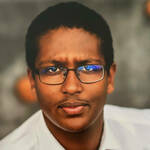I’m in Social Studies. It’s the seventh grade, and I’m an audacious and, of course, angsty twelve-year-old. I’ve had enough of Ms. Wright’s passionate lecture about the grazing strategies of the Iberian Peninsula in 1654. I have to get out of this situation, so what do I do? I talk so that everyone can hear me. And that includes Ms. Wright.
See, I’ve dealt with my voice my entire life, because it has always been changing and growing throughout my personal development. Whether it was in middle school, debate competitions, or the basketball courts, I’ve had to force myself to cultivate and nurture my voice, because that’s how I’ve gotten so far in my life. As an immigrant whose first language wasn’t even English, I have had to work on my voice like it’s an engine that needs a tune-up but in different situations. I have had to switch the voice I’m using in a situation just so whoever is listening to me is comfortable with how my voice makes them feel. I have had to talk in some areas and I have had to speak in some places, but it has always been my surroundings that influenced how loud I can be.
My history of talking loudly starts with my mother, who is a boisterous yet engaging Ethiopian woman. A conversation with her is a meal filled with laughter and scolding, all in one bite. Often, her straightforward intensity led me to feel like she was never listening. So, I started to speak up. I tried raising my voice because, of course, that is the solution to any disagreement or situation. This became the dilemma in Ms. Wright’s class, where I noticed my knack for excessive attention. Unfortunately, Ms. Wright sent me to the vice principal’s office, and a disciplinary meeting—parents included—was organized. I was told I was at trial for “disturbance of classroom,” but I preferred to call it “The Road to Stardom, a Wikihow.” This meeting exposed me to how my parents, especially my mother, truly felt about my almost regular disruptions in the classroom. The pure distress that I caused my parents, that I still couldn’t hear, was inexcusable because they were absolutely afraid. Afraid that despite their tireless efforts to provide me a life with true opportunities by immigrating to the United States when I was a year old, I was bound to enter a different road than the one my parents had planned to pave alongside me.
I had to learn that being loud does not guarantee being heard.
Roughly three years later, I decided to channel my voice into something healthy and productive: I joined the Speech and Debate team. Despite my mother’s reservations, she supported me, because she knew it would be the outlet I needed to properly express myself. However, at the start of my forensics career, I believed that the main point of a speech competition was to win and collect awards. I believed in that concept until I couldn’t enjoy the activity, and I was able to find that enjoyment in Original Oratory. I found the event in which I could actually utilize my loud yet passionate voice to speak the message that could resonate with even one person. One individual who could hear my voice and force themselves to really think.
And when I think about myself, I think about two things: I’m Black… and I’m relatively tall… so, of course, I love to play basketball at the courts two minutes away from my house. It’s light and simple pickup basketball, but I notice that when I play, the phrases the people on the court say, including me, the ways we speak are different. And after my team barely loses, there’s a small argument over skill because everyone knows all that masculinity can’t just be bottled up. But as soon as I insert my opinion, I hear someone say, “Shut your white talking ass up, n---a.” In essence, to them, to my own brothers, I was another Black person that was acting white just because of the way I spoke. And I found myself not being able to understand how to recognize myself as a so-called “real Black man,” because I felt like I had to choose what to be over who I was. I began to realize that if I say “Naw’meen?” I am the stereotypical Black man, but if I say, “Do you know what I mean?” or “Do you understand what I’m saying,” I’m an educated, articulate Black man. I have had to switch the voice I’m using in a situation just so whoever is listening to me is comfortable with how my voice makes them feel. I have had to talk in some areas and I have had to speak in some places, but it has always been my surroundings that influenced how loud I can be.
I understood—finally—that I had to stop talking, and start speaking. I realized talking was empty, a hollow transaction. Of course, I don’t intend to denounce communicating because a conversation to catch up with a dearly missed friend or a chat with a coworker about the next holiday party never hurt anyone. Conversations are essential to everyday life because of their ability to enchant a moment. Speaking, though, meant that I had something to say. It meant my words had gravity. I understood that this was an obligation I could not squander. Because there are too many of my brothers and sisters who have lost their voices just so I could speak. And to have my words valued. To have my voice validated.
I want to be heard, not because I am talking, but because I have something to say. Hear how my hard work speaks to my desire for personal growth. Hear my story of overcoming cultural barriers so that it can speak to others. Hear my mission. Hear my chant. Listen to my voice, “Naw’meen”?
Discussion Questions
The author describes a personal journey of discovering, changing, experimenting with, and defining his own voice. What are the various social and cultural complexities that the author addresses in his journey?
Take a few minutes to reflect on your own voice. What key events and people would you identify as shaping your voice today?
Look at the author’s use of present tense throughout the essay, even when describing past events. What effect does this rhetorical choice have on you as a reader?

